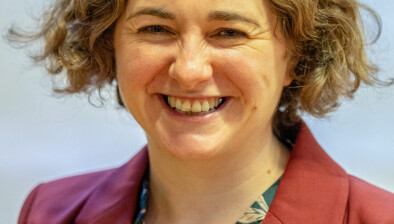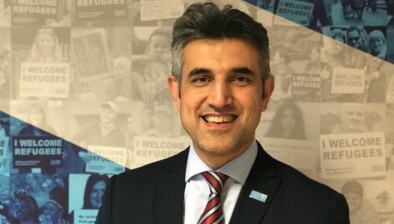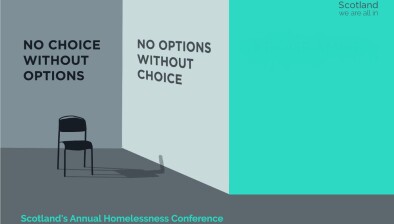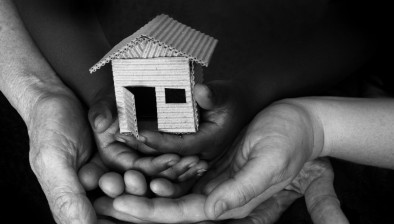International summit calls for humanitarian safety net for households not entitled to benefits
At a major international summit taking place in Glasgow this week, the Scottish Government, Glasgow City Council and international charities will call for the Home Office to enable a humanitarian safety net in Scotland for those who sought refugee protection and are unable to receive homelessness support because of their immigration status.

The summit is to take place on Thursday and Friday this week, with a focus on ending street homelessness.
The event will be hosted by the Chicago-based Institute of Global Homelessness (IGH), together with the Homeless Network in Scotland. It will discuss many topics such as the urgent problem faced by 300 people in Glasgow who are under threat of ‘lock-change evictions’ with little warning, many of whom have ongoing claims or appeals for asylum.
The Scottish Government has written to the new Home Secretary calling for her to intervene and warned that it is not acceptable for people at the end of the asylum process to be made destitute and homeless in a country where they have sought refuge.
Scottish housing minister, Kevin Stewart, said: “The Institute for Global Homelessness (IGH) shares Scotland’s ambition for everyone to have a safe, warm place to live. What is necessary for that is the legal framework and fair support from the UK Government to provide a safety net for people who arrived here to seek asylum – not a punitive system that pushes people into destitution. In a country with some of the strongest homelessness rights in the world, it is unacceptable for anyone to find themselves without a home. We continue to call on the UK Government for asylum seekers at risk of homelessness to receive the same support, regardless of their immigration status.”
Councillor Susan Aitken, leader of Glasgow City Council, said: “We have, repeatedly, raised these concerns with the UK Government and sought its support in averting the potential humanitarian crisis that will unfold if hundreds of people are made homeless on the streets of Glasgow with no right to even the most basic state assistance. Glasgow City Council is extremely limited in what we can do to help, as the UK Government prevents us from helping those facing destitution via the “No Recourse to Public Funds” legislation. The Home Office must allow local authorities to do what should ordinarily and reasonably be expected from them, to do the compassionate and human thing.”
Maggie Brunjes, chief executive of the Homeless Network, said: “This hostile environment is designed in by the Home Office and consigns vulnerable people to destitution. The legality of this action to evict has not been resolved and many people’s individual claims to live here are not resolved. Frontline workers need to be protected in law so they can support some of the most vulnerable people in society away from destitution, homelessness and harm.”
Sabir Zazai, chief executive of the Scottish Refugee Council, added: “Every day we see the severe consequences of street homelessness on men and women who have been rendered such. They are bewildered and scared: having fled persecution and risked their lives to get protection here, they find themselves denied the dignity of work, penniless and on the street. Homelessness should be suffered by no one. We are at the heart of the collective effort against the Home Office’s and Serco’s ruthless “lock change” programme.”
There has been a mass of activism from Glasgow citizens around this situation along with new partnerships formed to support people directly affected.
On this, Sabir Zazai added: “We appreciate the Scottish Government’s forthcoming anti-destitution strategy and the City Council’s inclusion of women and men in their homelessness work, and we know only too well that the NRPF rules are harsh and extensive, but we also know they are not total. That is why the city, collectively and now more than ever, must accelerate the anti-homelessness pathway. To put in place our own humanitarian safety net.”
Annika Joy, project director of Glasgow Night Shelter for Destitute Asylum Seekers, said: “The need for trauma-informed, fit-for-purpose accommodation is more vital and urgent than ever in Glasgow. Support from the National Lottery Community Fund of £150K in the summer enables us to strengthen and pilot an innovative Glasgow Model in partnership with public and third sector organisations including Glasgow City Health and Social Care Partnership and Glasgow City Council, as well as Scottish Refugee Council and the Homeless Network, to address homelessness in this population. But there remains a lack of appropriate accommodation in which people can feel safe and secure and constraints on funds to operate.”
Dame Louise Casey, chair of the IGH and former head at the UK Government Rough Sleepers Unit, will deliver a keynote speech at the summit.
She said: “The Scottish Government, local authority and charities in Glasgow are ready to step up and provide a safety net for people who are most at risk of homelessness. Our partners need the resources and the legal framework to take the necessary action to help people remain stably housed.”







